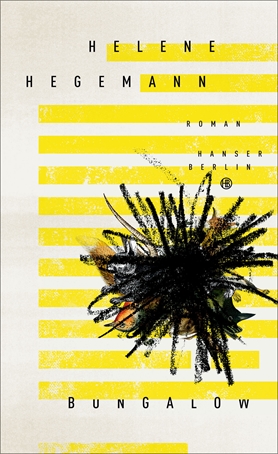Helene Hegemann’s clear and radical third book is a novel about surviving in an increasingly apocalyptic world and the vital power of free will.
The neighbourhood where Charlie grows up was bombed during the war and rebuilt in the 1950s as a symbol of the power of capitalism. It is a World Heritage Site but feels like the end of the world. While her mother drinks away their last money for food, Charlie stands on the balcony of their concrete tenement, watching the neighbouring bungalows and their inhabitants: millionaires, from whose behaviour she can read that several social classes exist, and that she herself belongs to one of the lowest. Then, shortly after her twelfth birthday, a couple moves into the neighbourhood who elude every category. They are unpredictable, chaotic, decadent actors and are smarter than anyone else around. From Charlie’s very first encounter, they become what the rest of the world would call her “first great love”: playmates and lovers, her greatest influence and greatest threat.
